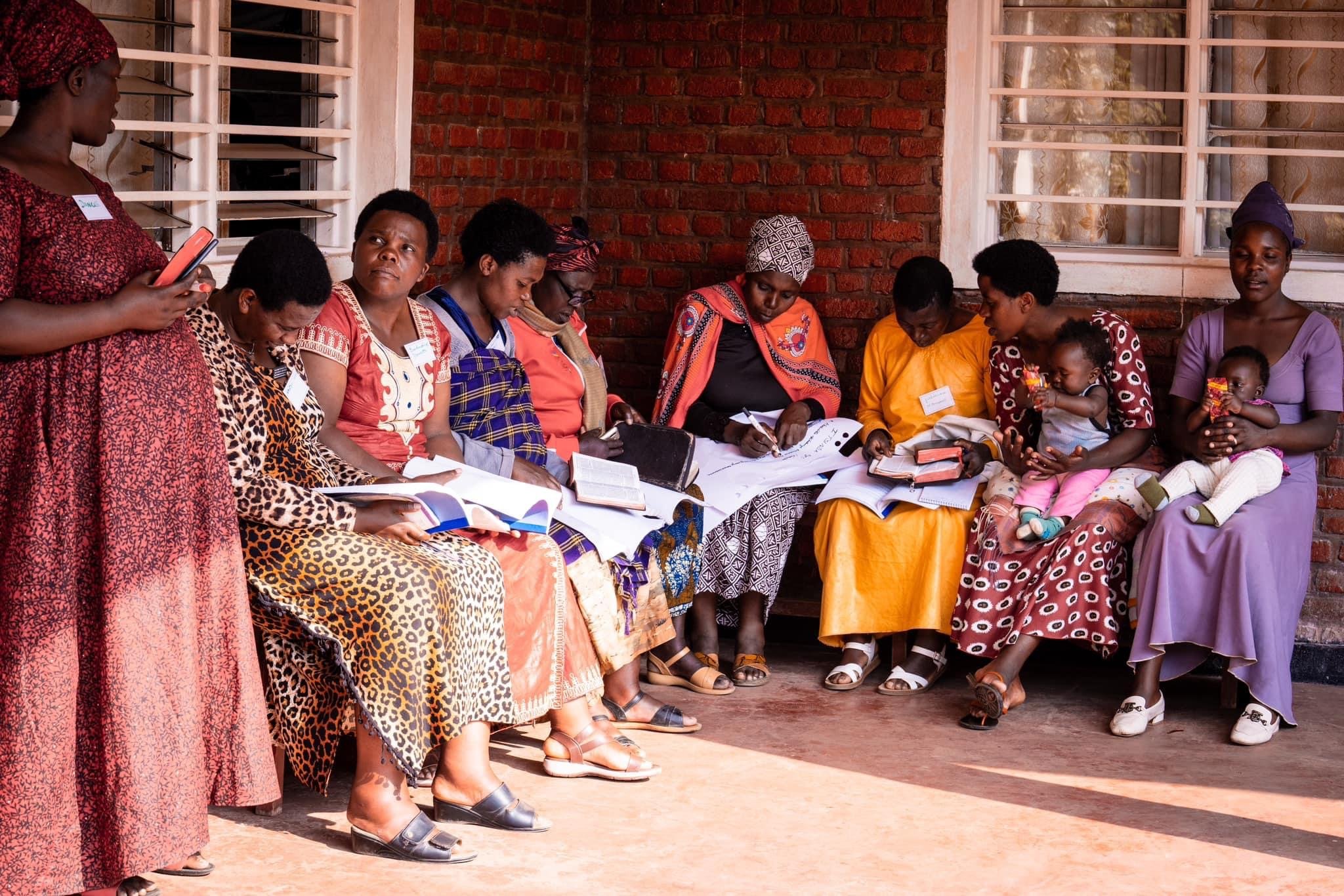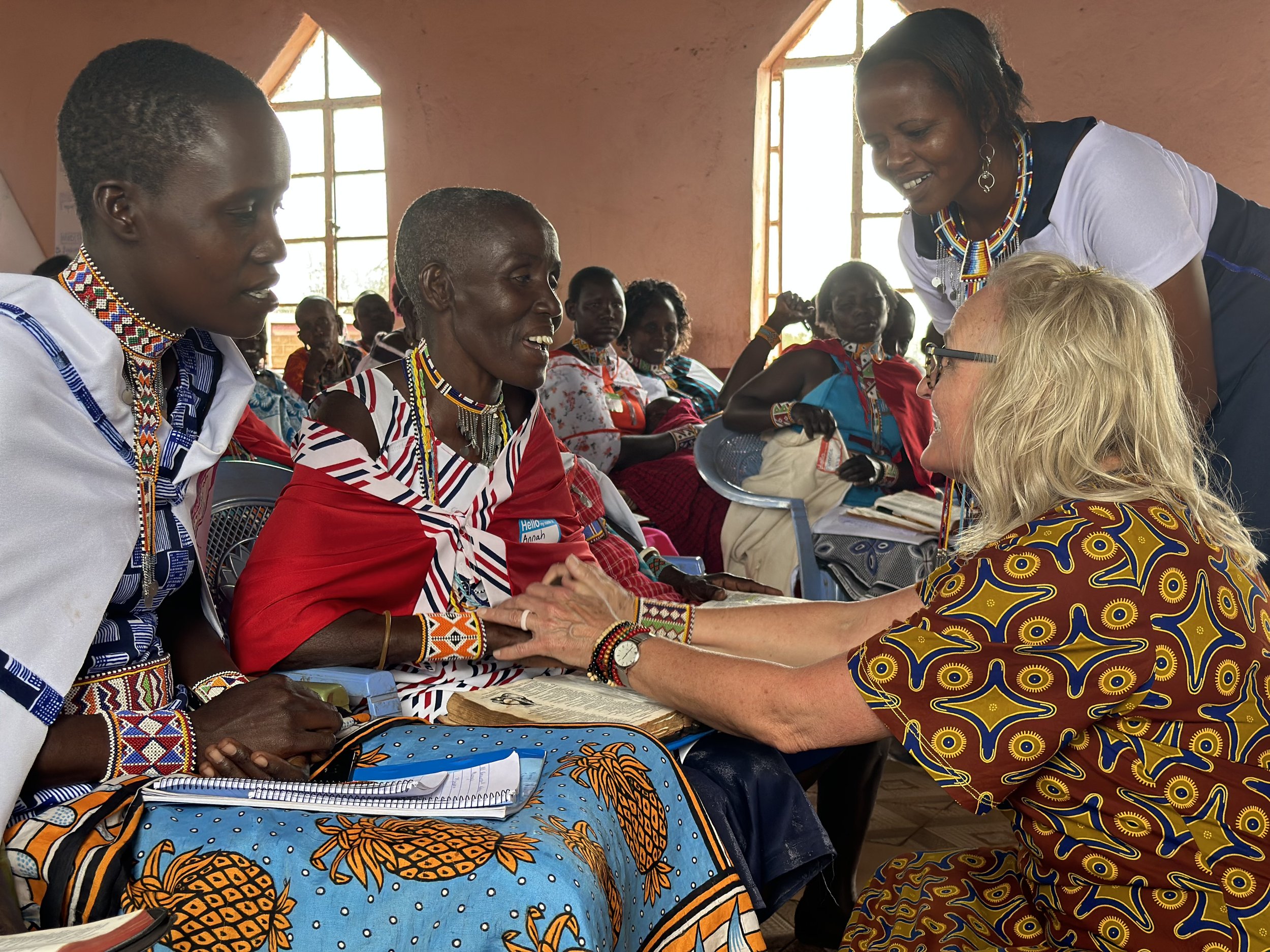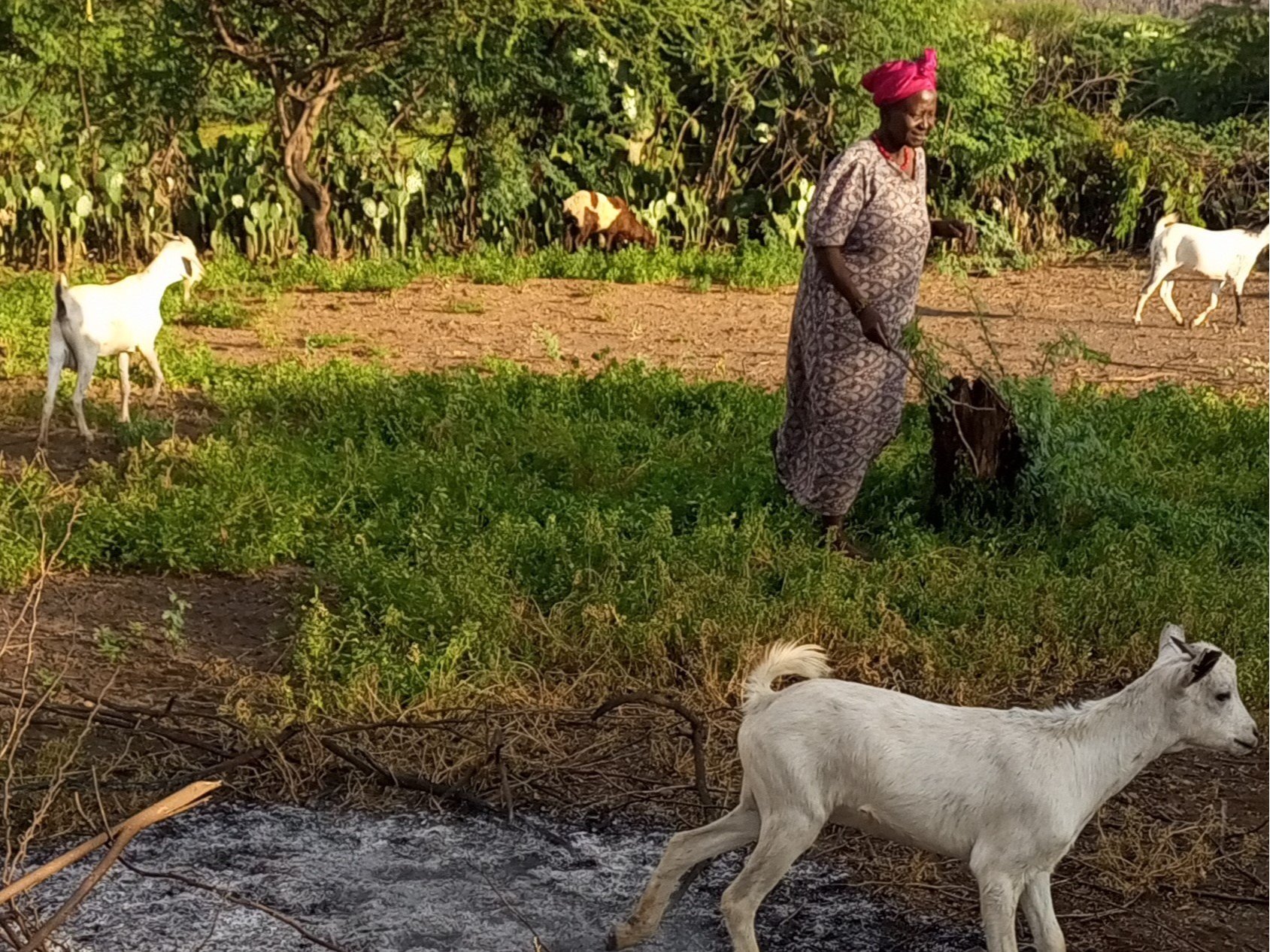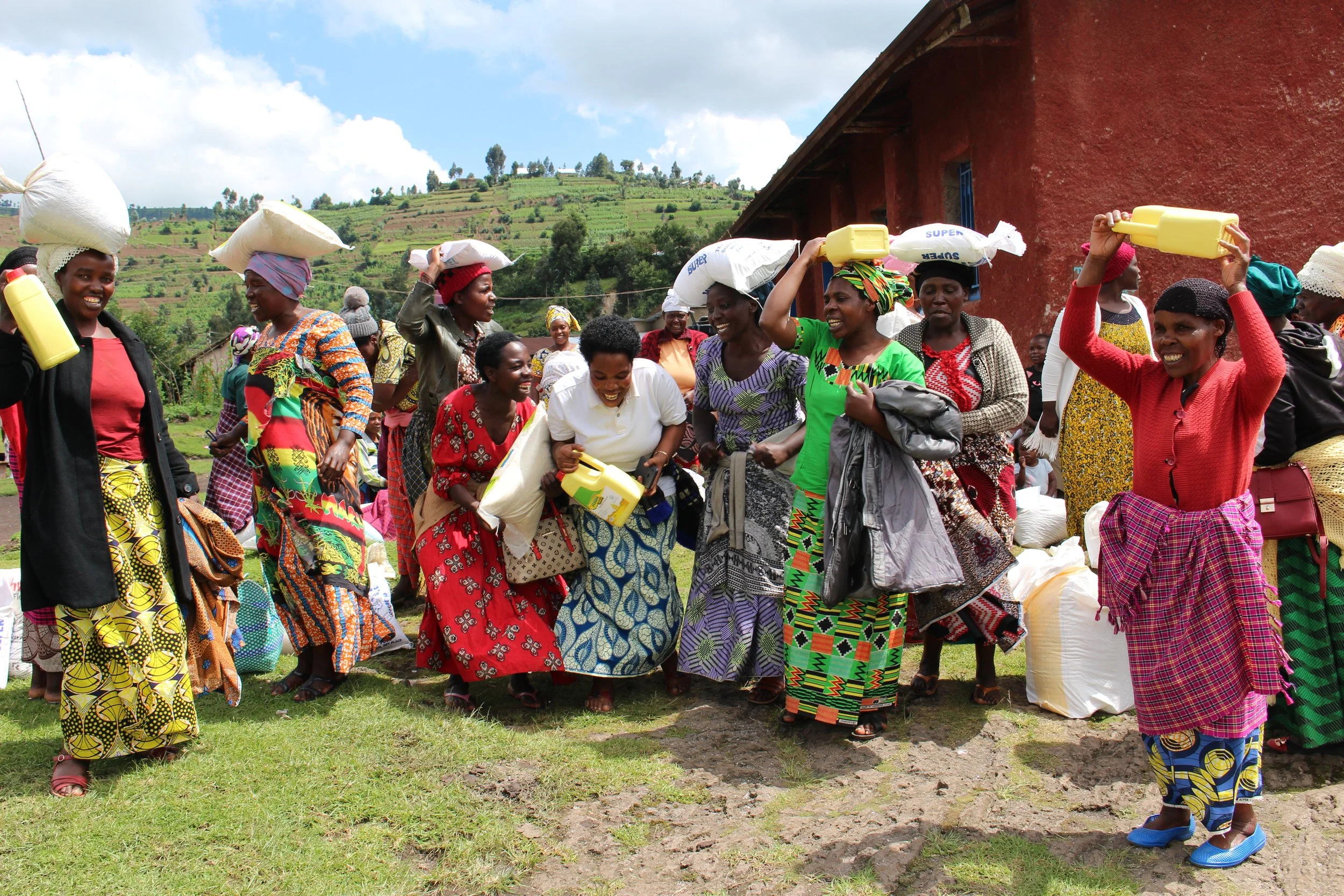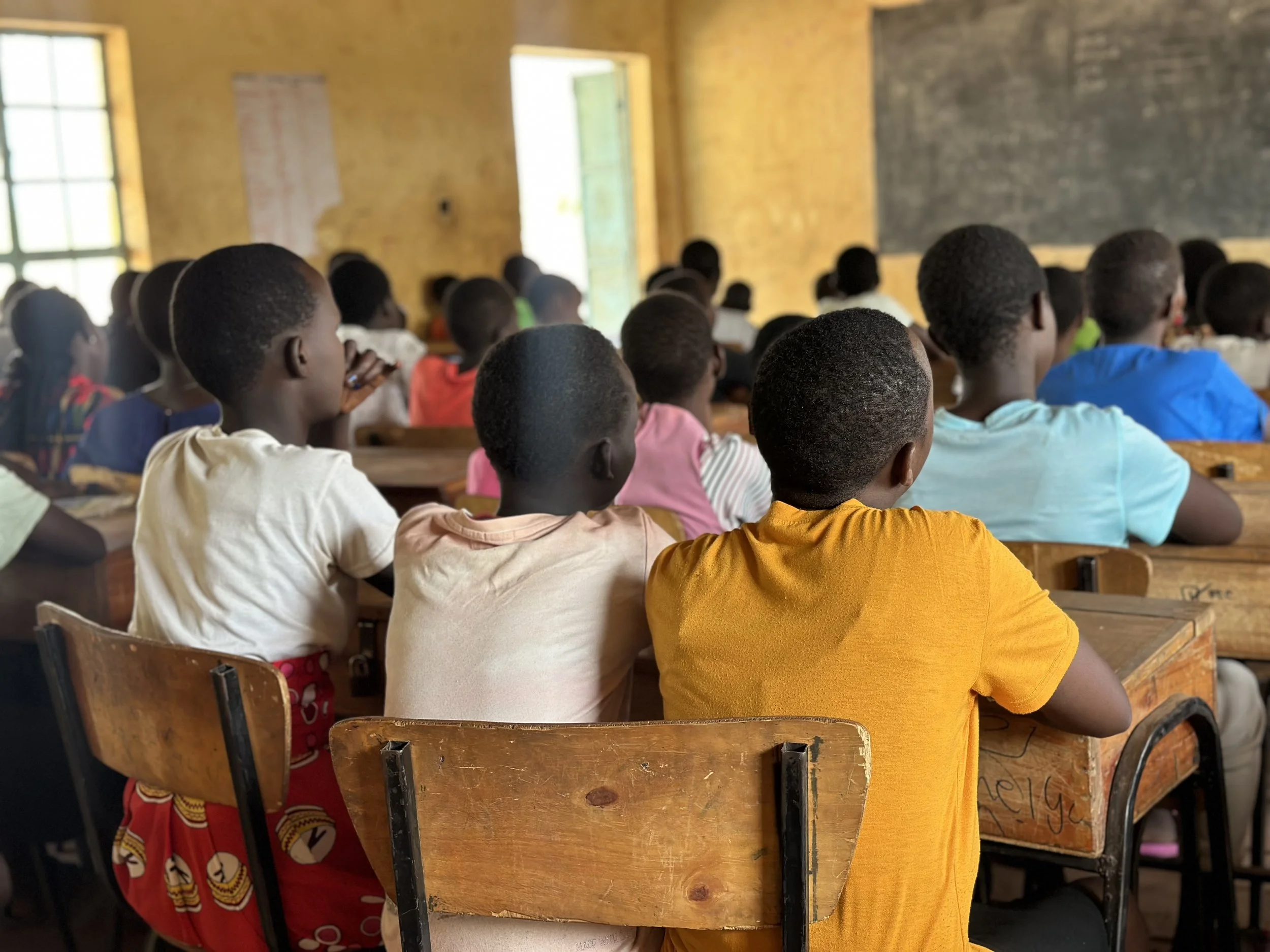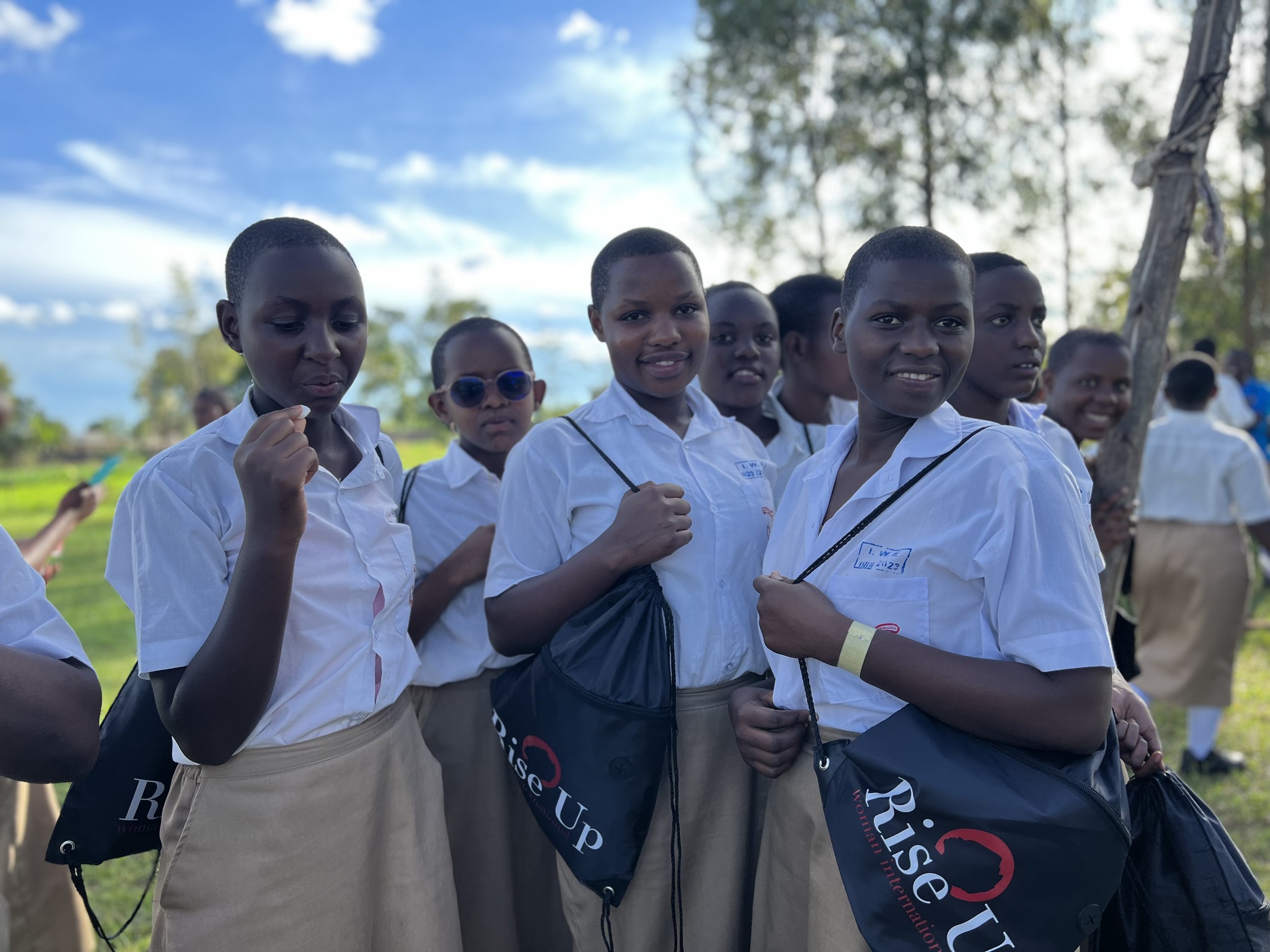
Encourage. Equip. Empower.
WOMEN’S LEADERSHIP TRAINING INITIATIVE (WLTI)
Walking alongside women in rural communities, Rise Up’s Women’s Leadership Training Initiative (WLTI) builds confidence, courage, and practical skills through a multi-year cohort experience. As women grow in leadership, they begin creating change right where they live, and the impact multiplies as they rise up to train and mentor others. Most WLTI participants have had limited access to formal education and still face cultural barriers that restrict the voices and influence that women and girls can have in their lives and the greater community. We know that when women have access to education and empowerment, everyone benefits. This is why Rise Up invests deeply in overlooked and underresourced areas.
This initiative brings together key women leaders who have been identified by the church and local leaders across regions and equips them through a holistic curriculum that includes:
Biblical Theology & Practical Discipleship – grounding women in God’s story so they can live it out, and mobilizing faith communities to break down barriers and build flourishing, reconciled communities.
Servant Leadership and Mentoring – developing competent, courageous, confident leaders who invest in others and multiply impact through intentional training and mentoring.
Counseling Practices, Trauma Awareness & Healing – providing understanding and creating a grounded, safe space to process pain, restore wholeness, and walk with others through trauma.
Conflict Resolution, Peacebuilding & Reconciliation – equipping women to resolve conflict, restore relationships, and build peaceful communities.
Health, Wellness & Women’s Realities – addressing cultural and gender challenges while promoting holistic health for women and girls.
Community Development & Economic Empowerment –equipping women to lead practical initiatives that strengthen families and create sustainable livelihoods for themselves and their communities.
Family Enrichment – strengthening the community by focusing on building healthy homes—including female-headed households—so women, children, and families can thrive.
As these women gain skills and confidence to use their voice in the church and community, they are better positioned to advocate for girls’ education, expand economic opportunities for women, and confront harmful practices, early marriage, and the exclusion of women in decision-making and property ownership.
Individual and community transformation happens in safe, supportive spaces where women can heal, learn, grow, and boldly advocate for change.
Current WLTI Cohorts
WLTI - Rwanda
In 2025, Rise Up, in partnership with African Leadership and Reconciliation Ministries (ALARM Rwanda), celebrated the graduation of 100 women who completed the Women’s Leadership Training Initiative (WLTI) in Rwanda’s Northern and Eastern Provinces. In 2026, we will launch a new cohort of 60 female leaders from the Southern and Western Provinces.
Rise Up is excited to continue to collaborate with our Rwandan Trainers-of-Trainers (ToTs). The ToTs graduated from the WLTI in 2018 and went on to complete a 1-year training program to become Trainers-of-Trainers. Identifying key community and church leaders is underway as we build our next Rwandan WLTI cohort.
A donation of $300 will cover the cost of one leader participating in a 4-day WLTI workshop.
WLTI - Kenya
In 2025, Rise Up, in partnership with ELYON Women’s Initiatives, celebrated the graduation of 70 women and is set to begin a WLTI in two new regions of Kenya with 100 Maasai women.
Because literacy levels are lower in these areas, the training is adapted to meet the cultural context and allow for better retention.
Quickly, we’re seeing growth and community impact as women gather in a safe, supportive space to heal, learn, grow, and advocate for change.
Even pastors and other men in the community are noticing the difference and are now requesting training, too!
Why these locations?
Walking alongside women in underresourced and often overlooked areas helps spark confidence and courage so they can lead change right where they live. Most women in these regions have had limited access to education and have faced cultural practices that limit the voice and influence of women and girls. As these women gain skills and confidence to use their voice in the church and community, they are better positioned to advocate for girls’ education, expand economic opportunities for women, and confront harmful practices (in some instances, female genital mutilation (FGM), early marriage, and the exclusion of women in decision-making and property ownership.
WLTI - Uganda
In 2024, Rise Up, in partnership with Equip and Send Ministries (EASM), launched the multi-year women’s leadership training program in Eastern Uganda with 40 leaders.
In this region, poverty, patriarchal norms, and limited access to women’s training and empowerment all impact the well-being of women and their families. As women develop skills, gain opportunities, and grow in confidence, the benefits ripple outward to their children and extended families, fostering generational change.
A donation of $200 will cover the cost of one leader participating in a 4-day WLTI workshop.
ECONOMIC EMPOWERMENT & COMMUNITY DEVELOPMENT
Economic empowerment and training are game-changers in a developing country because they move people from helped to self-sustaining. Here’s how:
Breaks the cycle of poverty.
Skills + income = choices. When people learn a trade, get business training, or improve farming methods, they can earn steadily instead of surviving day to day.Stabilizes families.
When a mom or caregiver has her own income, kids are more likely to stay in school, eat regularly, and get medical care. Economic stability shows up first in the home.Builds local economies.
Trained entrepreneurs buy from local markets, hire neighbors, and create small value chains. That keeps money circulating in the community instead of leaving it.Reduces vulnerability.
People with no income options are more easily exploited—by bad employers, traffickers, or even conflict. Economic power = more ability to say “no.”Dignity and agency.
Work and income allow people—especially women—to contribute, make decisions, and be seen as leaders. That shifts cultural norms over time.More impact than aid alone.
Relief is important in crisis, but training creates long-term change. When someone knows how to grow more food, run a small business, or manage money, the impact keeps multiplying.
That’s why programs that pair training (skills, savings groups, agriculture techniques) with opportunity (loans, livestock, markets) are so strategic—they don’t just meet needs, they unlock potential.
Current Initiatives:
Burera Farm Initiative- Rwanda
The Burera Farm Initiative is located on 5 acres of land and focuses on transforming the community by training small farmers and community members in mixed farming techniques and pig rearing. Because of your generosity and prayers, the Burera Farming and Educational Project is helping families build a more stable, hopeful future through sustainable agriculture and community empowerment. Rise Up has continued to partner with African Leadership and Reconciliation Ministries (ALARM-Rwanda) since 2020, supporting the salaries and infusing capital.
In 5 years, 1937 small-scale farmers were trained in conservation farming, including soil care, crop rotation, composting, and water conservation. This learning has produced more substantial and resilient harvests.
Pig Pass-Forward: Hope That Multiplies
Since 2020, 95 piglets have been given to vulnerable families, including widows and single mothers, through the pass-forward approach.
Growing Knowledge, Growing Impact
The agronomist, Michelle, attended an agroforestry workshop in Uganda and is now sharing climate-smart practices with farmers in Burera.
Every piglet, every seed, every woman trained helps families move from surviving to thriving. Burera is cultivating hope one seed, one piglet, and one woman at a time.
Establish a Tailoring School - Rwanda
Humura Mugore (Cheer Up) is a women’s group formed by graduates of Rise Up Woman International’s Women’s Leadership Training Institute (WLTI) who returned home ready to put what they learned into practice. Today, the group includes 45 women who are building community, supporting one another, pursuing income-generating activities, and sharing what they’ve learned with others.
To help women create a sustainable source of income for their families, Humura Mugore has chosen tailoring as their primary vocational focus. Through an eight-month tailoring training program, women gain practical sewing skills and confidence that translate into greater stability at home and new opportunities in the community.
What this initiative makes possible
Women grow in self-reliance and reduce household conflict connected to financial strain and unmet responsibilities.
Families are better able to pay school fees and support children’s education. Strengthening Women.
Nearby schools can access affordable uniform tailoring, and families can access basic repairs and alterations.
Young unmarried women gain skills and support that can reduce the pressures that contribute to early pregnancies.
Each training cycle equips 20 women, and within three months of completing the course, participants can begin generating income to help sustain materials, rent, and the ongoing work. New groups of 20 will continue rotating through the program so the wider community can access training over time.
Rebuilding Lives - Kenya
Through Rise Up’s partnership with EYLON Women’s Initiatives, women who have experienced displacement, insecurity, and loss are being equipped to heal, provide for their families, and lead in their communities.
Women are gathering to grow spiritually, process trauma, and learn practical income-generating skills. The approach is slow, relational, and designed to be self-sustaining.
We currently have 150 women participants in two areas.
Key project elements:
Goat Pass-Forward Project: Women receive goats and, as they reproduce, pass on goat kids to other women—so more households gain a steady source of income over time.
Small Business Training: Women are starting kiosks, small eateries, and other microenterprises. Even when profits are small, they report increased stock, confidence, and purpose.
Trauma Healing & Peer Support: Women are learning grounding techniques, worship, and mutual encouragement to cope with stress and past trauma. Many now meet regularly for ongoing healing and capacity building.
Spiritual and Identity Formation: Each woman is reminded of her dignity and value, which fuels resilience and unity.
These projects are doing more than meeting needs—they are restoring dignity, building economic independence, and creating a network of women who are rising together.
Invest $150 to provide the capital an entrepreneur needs to start their own business and generate income, by raising pigs, goats, selling fruits and vegetables, clothing, or household goods.
Economic Empowerment - Rwanda
Rise Up Woman International, alongside ALARM-Rwanda, is strengthening six women’s groups launched by Women’s Leadership Training Institute graduates across Rwanda’s Eastern, Northern, and Western regions. Women in these rural areas need this support due to poverty, limited education, and few pathways to stable income, even while carrying significant responsibility for their households.
Working through WLTI graduates strengthens this work because these women are trusted, known, and respected in their communities. Because they have established relationships and credibility, they can mobilize women’s groups more effectively, model healthy practices, and pass on skills in ways that multiply impact and sustain change over time.
Many group leaders have already started small businesses such as farming and animal husbandry, resale shops, and trades like tailoring and weaving. Still, they face barriers to growth due to limited capital, lack of collateral for traditional loans, and high interest rates that make it difficult for borrowing to generate lasting income.
This initiative builds women’s capacity through training in entrepreneurship, microbusiness management, stewardship, savings, and micro loan management, paired with a revolving fund that provides start-up capital for income-generating activities.
Outcomes include
Increased household income, well-being, and nutrition
Stronger business skills and responsible credit use
Improved access to markets and financial services
Greater savings habits and financial literacy
Increased confidence, empowerment, and community leadership
Reduced poverty and greater long-term self-reliance
A donation of $250 provides training, follow-up, and a micro-loan for 1 woman for 2 years.
SUPPORTING EDUCATION
Educating a girl in a developing country is one of the most powerful ways to change a family, a community, and even a nation. Here’s why it matters so much:
Economic lift for the whole family.
When a girl goes to school, she is more likely to get a job or start a small business as an adult. Educated women reinvest up to 90% of their income back into their families (food, schooling, housing), which breaks the cycle of poverty much faster than almost anything else.Healthier families and fewer child marriages.
Girls who stay in school tend to marry later, have fewer and healthier children, and are better equipped to make informed decisions about their bodies. Education is one of the strongest protections against early marriage and exploitation.Stronger communities.
Educated women are more likely to participate in community leadership, advocate for peace, and stand up against injustice. That means education doesn’t just help her—it improves how the whole community functions.Next-generation impact.
A mother’s educational level is one of the best predictors of whether her children will attend school. So teaching one girl today often means teaching all her children tomorrow.Voice and dignity.
Education gives girls the confidence, language, and skills to speak up—about violence, about unfair treatment, about their rights. That’s huge in places where women’s voices have been minimized.National development.
Countries where girls and boys are educated at similar rates have faster economic growth and more stability. So educating girls isn’t “charity”, it’s a smart investment.
Current Adolescent Work:
Dignify the Girl Child - Kenya
The Dignify the Girl project is a girls’ empowerment initiative in Kenya that brings vulnerable girls together during school breaks to help them discover their identity, build life skills, and stay focused on education.
Dignify the Girl Workshops, launched in 2023, each session attracts over 100 girls. In 2026, we will be adding a third area.
Our facilitators and mentors focus on self-esteem, time management, coping with emotions, healthy sexuality, career guidance, and spiritual growth. The goal is to raise confident, purposeful girls who can stand up to harmful cultural pressures.
This work is supported by the Dignify the Girls Scholarship Fund, which helps vulnerable girls stay in school. The fund provides tuition, school supplies, and personal essentials for high school and university students, with each scholarship carefully vetted to ensure it reaches those most in need.
Together, the program and the scholarship fund are nurturing young women who will be equipped and empowered to initiate change in their lives and in future generations.
IWE Secondary School - Rwanda
Adolescence is a critical time that often defines a girl’s future. Girls are strong and capable. They deserve the opportunity for an education in a safe, supportive, and stimulating environment. The Institute of Women for Excellence (IWE) is a secondary boarding school for girls focusing on science, technology, engineering, and mathematics (STEM). IWE has been educating young women since 2006. This school is operated by African Leadership and Reconciliation Ministries (ALARM-Rwanda), with incredible staff.
A girl’s economic situation should not dictate the education she receives. Join us in unleashing these young women's creativity, ingenuity, and potential.
Because of the recent renovations and God’s faithfulness, the school is becoming more sustainable. IWE has grown from about 133 students in 2023 to 350 in 2025.
$45 a month helps an IWE student stay in school by covering the cost of boarding and coursework.
